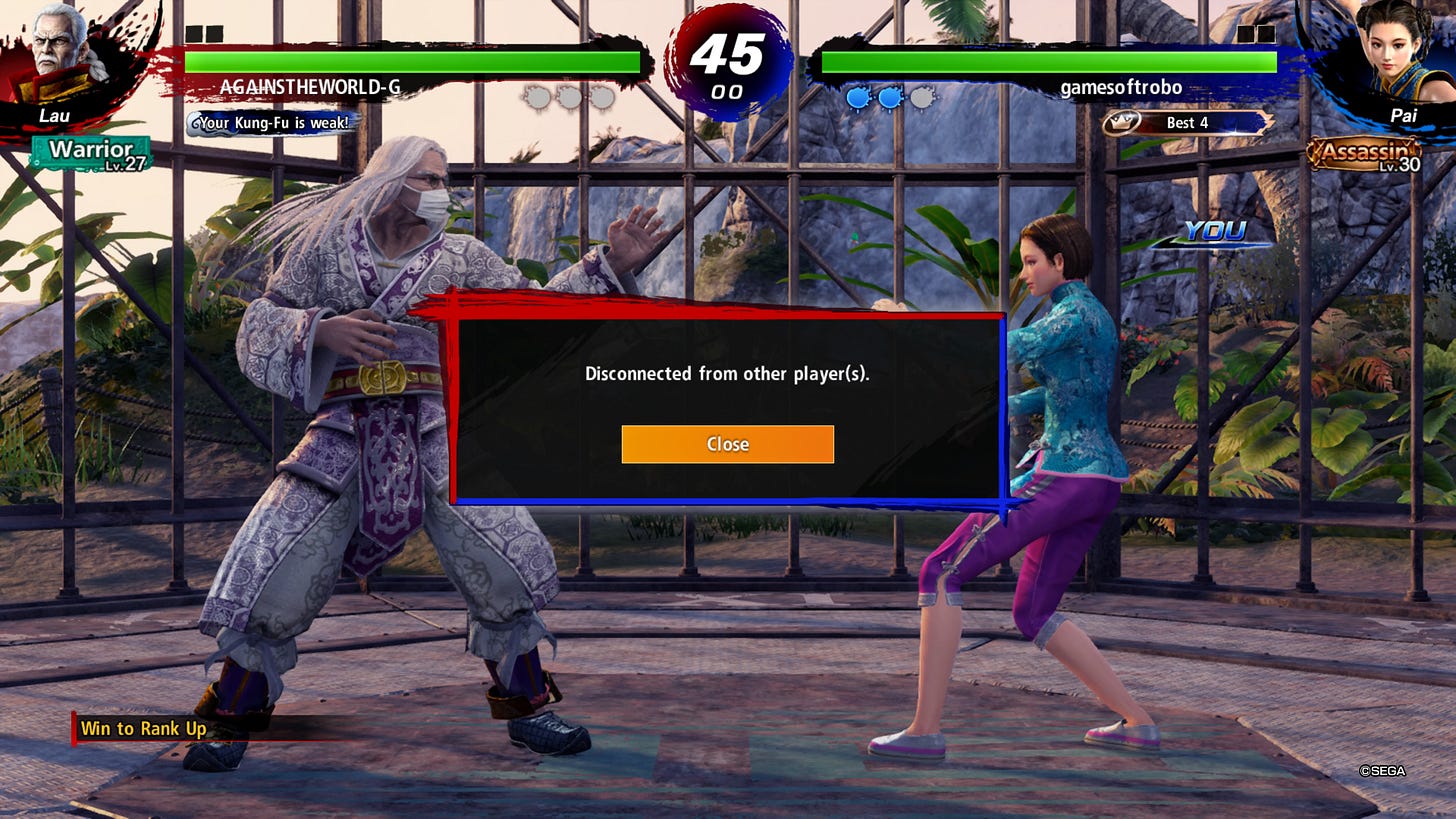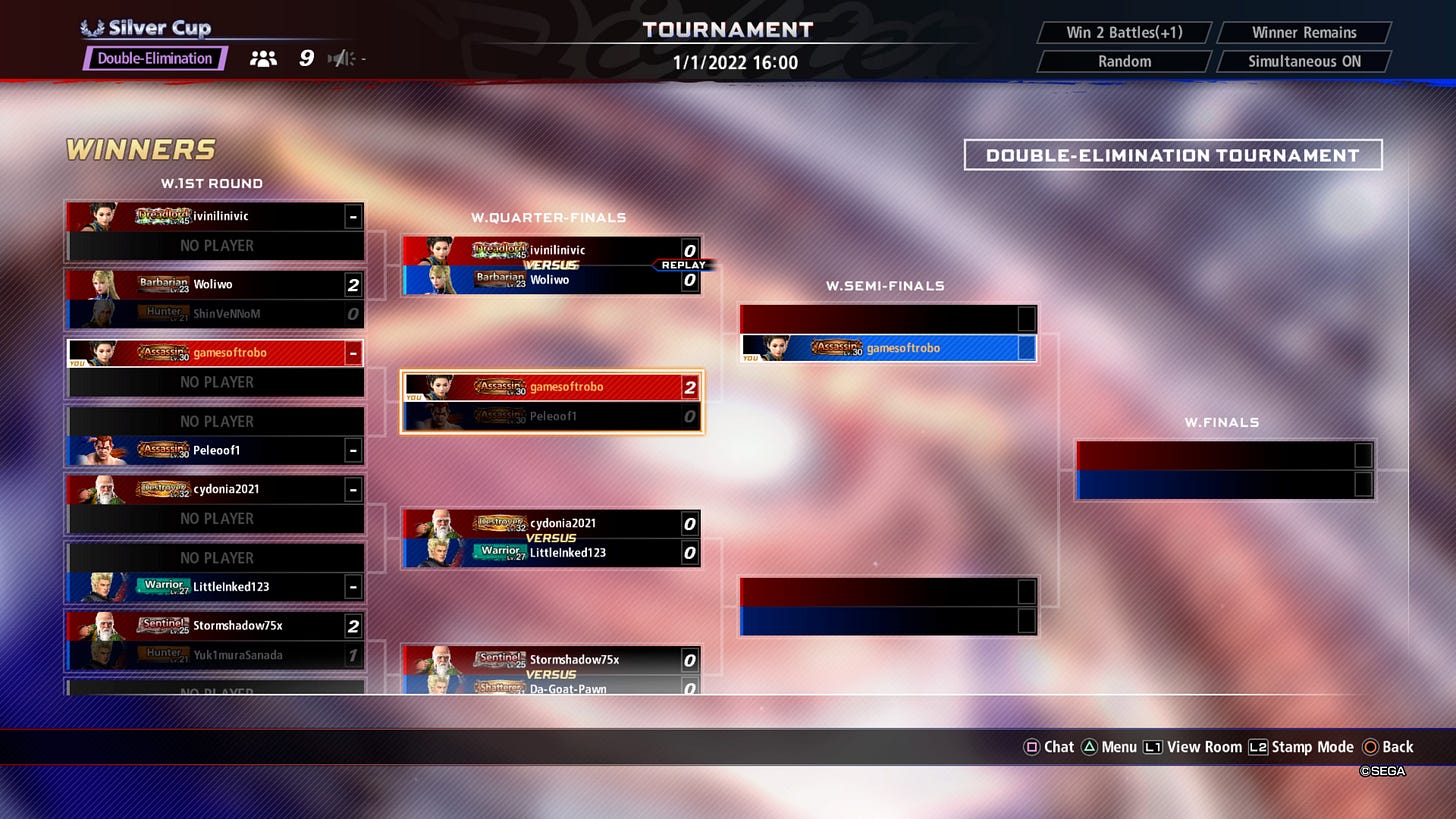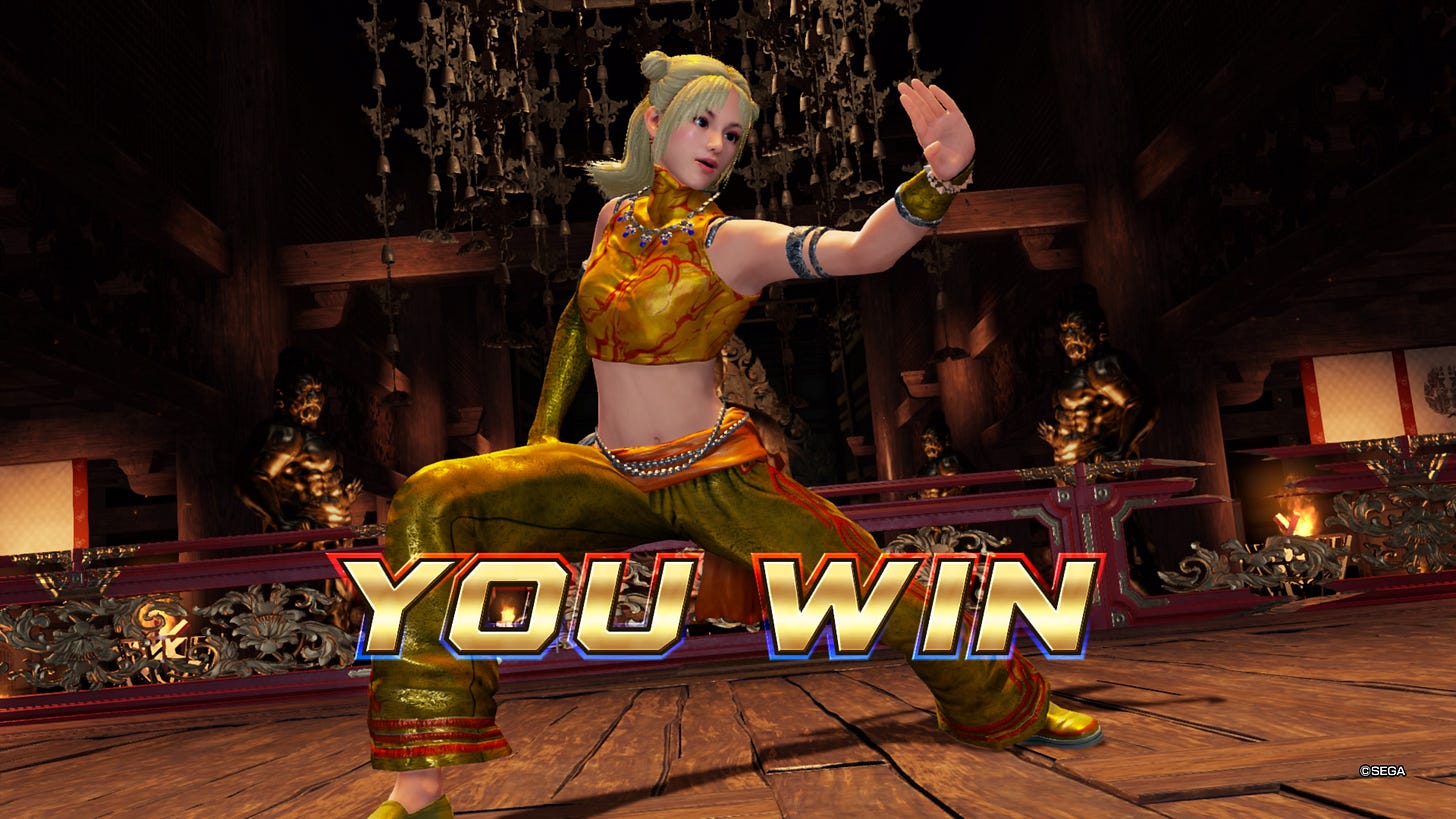The last time I talked about Virtua Fighter 5: Ultimate Showdown, it was about the developer’s conscious decision to stick with outdated delay-based netcode.
This has not changed, and it is unlikely to change until the recently implied Virtua Fighter 6 comes along. As such, Ultimate Showdown has lagged in the back of my fighting game rotation behind the rollback-equipped, user-friendly smooth online experiences of Melty Blood Type Lumina and, to a lesser extent, Guilty Gear Strive.
(Lobbies and matchmaking in Strive remain torturous, but that’s a story for another day.)

However, I do love VF5 when it comes down to it— I’ve only been playing it for what, fifteen years now?— So I recently returned to Ultimate Showdown to see how things were going. When I left, the initial rush of players was just about gone. With fewer players spread further out— and a rank system that isolates them further— what few matches I got were laggy enough to turn me away from the game altogether.
This time, though, the game’s population seemed a bit healthier. This is purely anecdotal, but I have had plenty of good matches against high-quality connections in the last few weeks. Perhaps giving the game out for free for a while— and selling it for just $20 after— helped it out in the long run, in a long-tail way.

But I suspect something else helped; something that was added while I was away. In the spirit of its Japanese title (Virtua Fighter 5: eSports), this game has a fully-featured double-elimination tournament mode for 16 players. This isn’t new by itself— several other titles have this functionality— but VF5’s implementation is very smart.
In Tekken 7, you can start a 16-person online tournament whenever you want to and open it to anybody. This mode is a total mess: it takes half an hour to gather the players, fragile sore losers quit out after a single loss, and most importantly, the players’ various connection speeds are disastrous, leading to unsatisfying, unplayable battles. Who cares who won the match when it was a stuttering mess?
Ultimate Showdown has thought things out a little more. Its tournaments take place on specific days at specific times (Saturdays, with tourneys at three different times to accommodate international time zones.) This seems limited, but it has a very important purpose: getting lots of players together at the same time.
People who run tournaments for “Discord games” with relatively dead communities know this well: If your online fighting game has bad netcode, the best thing you can do is get a lot of players together at once for some kind of event. The more players online, the more likely they can fight against someone close to them, thus better matches. Note how fighting games with bad netcode are most active when new DLC characters drop (hello, Granblue Fantasy Versus!).

As many players queue up for Ultimate Showdown’s scheduled tournaments, the game begins sorting. You’ll be placed into one 16-person tournament lobby, and then maybe moved to another one, and another after that. The game’s shuffling together players who have good connections to each other, and automatically setting up 16-player tournaments between them. Thorough matchmaking from a big pond is the second best way to cover for bad netcode. (the best way is to just put rollback in your game)
Sure enough, when I played a tournament on New Year’s Day, I found myself in a room full of players with fast connections, many of whom I was familiar with from ordinary ranked play. We had a great tournament with very little lag and zero interruptions in play. It was about as good as it gets— for delay-based. (Inherent delay-based issues, like a few frames of input lag making you miss even when you definitely blocked, still applied.)

While you’re waiting for a match, the game will broadcast other matches from the tourney on a video screen for spectators. Players won’t see it (this is good, trust me), but spectators can post stickers on screen (with accompanying sound effects) to commentate on the ongoing fight. When I won a particularly close match in the tournament and re-entered the lobby to virtual cheers from the other players, it felt pretty awesome.
The bragging rights are pretty minor: if you place well you can put “Winner”— or in my case “Top 4”— in your profile for the week after that tournament. Most players still left after they got eliminated, but 6 or 7 of us watched the whole thing just to see how it would come out. Of course it doesn’t hold a candle to the sheer excitement of live competition, but good luck getting that right now. (I made third place, incidentally.)
I was so surprised by Ultimate Showdown’s tournament mode that I thought I would say something about it here; I feel like people should know it’s there! I feel like more fighting games should have a mode like this! Honestly, I didn’t really expect a good online mode from a developer that passed on rollback: that’s a disqualifying choice, after all. But Ultimate Showdown makes the best of a bad situation. See you on Saturday.
Also the new Yakuza costume DLC pack comes with a completely new arrangement of the Virtua Fighter 3 soundtrack, which is an all-timer, just saying.



